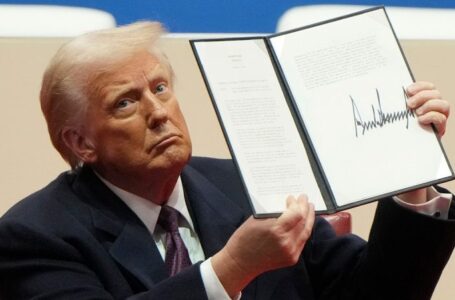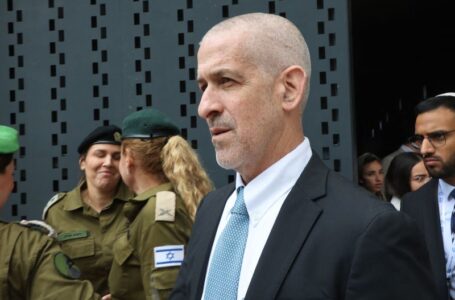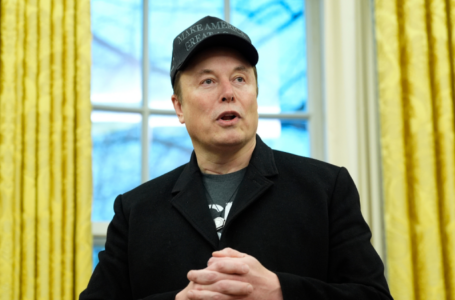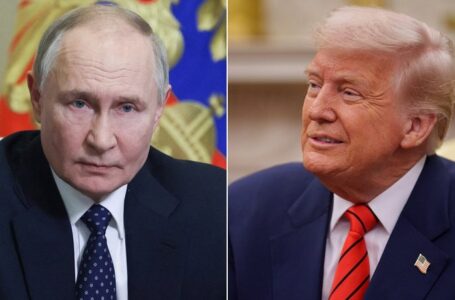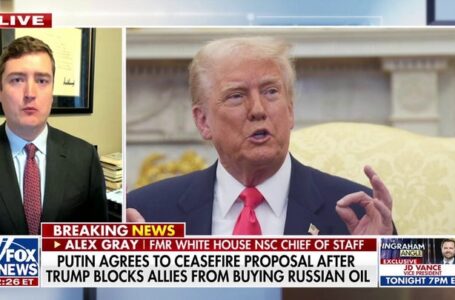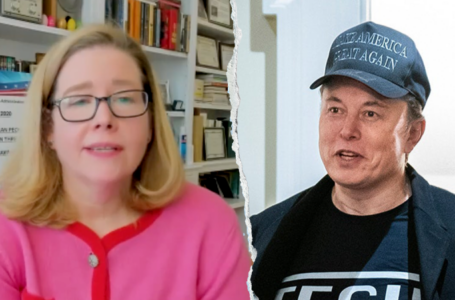US military shoots down Houthi drones as Trump’s strikes against terrorist group continue
In Nebraska, independent Senate candidate gives GOP a competitive race
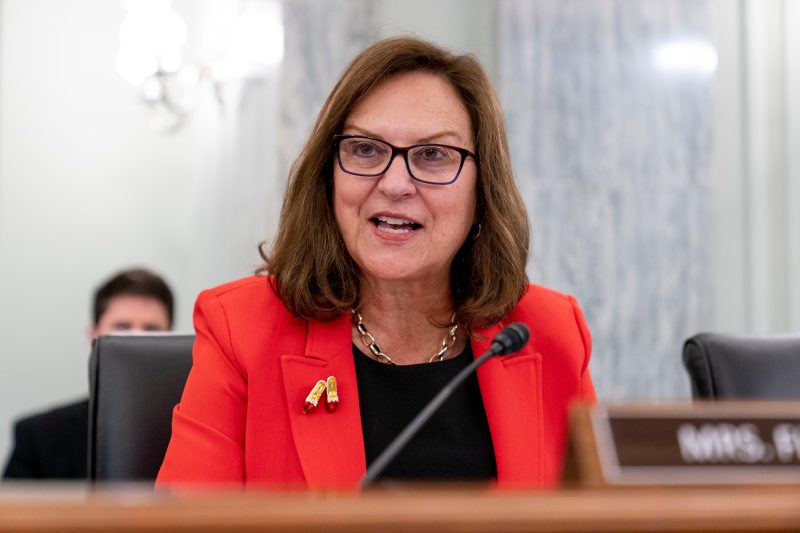

Sen. Deb Fischer (R-Neb.) defeated her Democratic opponent for reelection by double digits six years ago in a race that drew virtually no national attention.
This year’s campaign is proving far more competitive — even without a Democrat on the ballot.Dan Osborn, an independent candidate with a populist appeal, has attracted millions of dollars in outside support and forced national Republicans to pay attention — and invest money in the race — as they fight for the Senate majority.
“People are just thirsty for a change, on both sides of the aisle,” Osborn, an Omaha union leader, said in an interview. “People are just sick of it — they’re sick of the division, they’re sick of politicians doing corporate bidding.”
Fischer is taking Osborn seriously after mostly ignoring him. About three weeks ago, she rolled out the endorsement of former president Donald Trump, who attacked Osborn as a “Bernie Sanders Democrat” — a reference to the independent senator from Vermont who caucuses with Democrats — and her campaign launched a TV ad labeling Osborn a “Trojan horse” for Democrats.
And on Thursday, Fischer called a news conference in Omaha to warn Osborn is a threat to Republicans taking control of the Senate.
“Nebraskans right now are just finding out who my opponent is and what my opponent stands for,” Fischer said.
The National Republican Senatorial Committee started helping pay for anti-Osborn ads last week. An NRSC spokesperson said the committee “will ensure Deb Fischer has what she needs to fight back.”
“Nebraskans won’t be fooled — once they learn that he’s a radical Democrat in disguise, they won’t support him,” Fischer campaign manager Derek Oden said in a statement.
Limited polling indicates the contest is a single-digit race, while a New York Times/Siena College poll published Saturday found that Osborn led Fischer inside Nebraska’s only competitive House district. Three independent election forecasters shifted their rating of the race in Osborn’s favor last week, though their ratings suggest he is still the underdog. The Cook Political Report changed its ranking from “Solid Republican” to “Likely Republican.”
As of Friday, the race had seen $7.8 million in advertising spending, according to the ad-tracking firm AdImpact — a significant sum for a state that Trump carried by 19 percentage points in 2020.
Osborn has proven a strong fundraiser himself, outraising Fischer in the second quarter. But the race took a more concerning turn for the GOP once a super PAC, Retire Career Politicians, started spending over $3 million helping Osborn. One of its top donors is the Sixteen Thirty Fund, a liberal dark-money group.
Retire Career Politicians did not respond to a request for comment about its funding. But in a memo last month, it called the race a “real opportunity for an historic upset” and noted that Nebraska’s ballot measures this fall — on abortion and marijuana — could cause the electorate to “look different from normal.”
Ari Kohen, a political science professor at the University of Nebraska-Lincoln, said he was not surprised that Osborn has gained traction. He said Nebraska’s statewide preference for Republicans belies a political culture that is more nuanced, citing the state’s nonpartisan, unicameral legislature and its practice of awarding some electoral college votes by congressional district — a practice that Trump and his allies unsuccessfully pushed to end in recent weeks.
“There’s a lot more of a sense of political independence here, and so if you put an independent on the ballot, if you give people the choice … it’s no surprise from my perspective that people would be interested,” Kohen said. “The people of Nebraska see themselves as the salt of the earth, blue-collar, and so when you have someone who is that … I can see certainly why that kind of a candidate would be immediately attractive.”
Nebraska previously had an independent senator in George Norris, who left the GOP in 1936 before his election to a final term.
Fischer and her allies have sought to portray Osborn as too liberal for the state and link him to the politics of Sanders, a self-described democratic socialist. In the past, Osborn has promoted Sanders on social media.
“The facts are, I’ve been a registered independent from the time I could register to vote,” Osborn said. “I’ve always had an independent spirit. I’ve never been able to put myself in a tidy red or blue box.”
As for his pro-Sanders activity, Osborn said he was expressing gratitude after the Sanders campaign made a $25,000 donation to help striking workers whom he organized at a Omaha’s Kellogg plant in 2021.
Osborn gained national prominence after he led the 2021 strike as president of the local Bakery, Confectionery, Tobacco Workers and Grain Millers International Union. The strike lasted 11 weeks, ending with about 1,400 workers approving a new contract.
The strike drew the attention of high-profile Democrats including Sanders and President Joe Biden, but also Republicans such as Nebraska Gov. Pete Ricketts, who urged Kellogg to resume negotiations with workers after a breakdown.
Kellogg later fired Osborn. He became an apprentice with the steamfitters union, a jobfrom which he took a leave of absence this spring to fully focus on his campaign.
Osborn announced the day after Nebraska’s May primary that he would not accept any partisan endorsements. The decision upset the state Democratic Party, which had been considering backing him after not fielding a candidate of its own in the primary.
A third-party candidate later dropped out and endorsed Osborn, giving him a head-to-head matchup against Fischer.
Osborn has sought to appeal across parties with his criticisms of Fischer, accusing herof being too beholden to corporate interests, not holding enough town halls and breaking a term-limits pledge. Fischer said when she first ran for the seat in 2012 that she would not serve more than two terms.
Oden, Fischer’s campaign manager, said Fischer supports term limits “when they apply to everyone” but decided to run for a third term after Nebraskans encouraged her to keep building seniority in the Senate.
While Fischer is campaigning heavily on Trump’s support, Osborn is keeping his distance from the presidential race. He declined to say how he plans to vote, saying his previous announcement on partisan endorsements means he is not only rejecting them but also not issuing them.
When it comes to Trump, Osborn has countered Fischer’s embrace of the former president by saying she “betrayed” him in 2016, calling on him to drop out over the infamous “Access Hollywood” tape.
If elected, Osborn said he would seek to create an “independent caucus” rather than caucus with Democrats or Republicans. The four independents who currently serve in the Senate —Sanders, plusAngus King (Maine), Joe Manchin III (W.Va.) and Kyrsten Sinema (Ariz.) — all caucus with Democrats.
The Senate Democratic campaign arm has publicly distanced itself from the race.
“We do not have a Democrat running in Nebraska, and so I’m not engaged in that in any way,” Sen. Gary Peters (D-Mich.), chair of the Democratic Senatorial Campaign Committee, told reporters last week Washington. “I don’t pay attention to Nebraska. I got a lot on my plate.”
In addition to Retire Career Politicians, another outside group, Nebraska Railroaders for Public Safety, has spent significantly on Osborn’s behalf, pouring nearly a half a million dollars into the contest, FEC records show. Its top contributors also include the Sixteen Thirty Fund.
“[W]e’re trying to draw from everybody to elect an independent because our big push is partisan politics isn’t working,” Mike Helmink, founder of the Nebraska Railroaders for Public Safety, said, adding that his group has also sought GOP support but the party is “circling the wagons” around Fischer.


